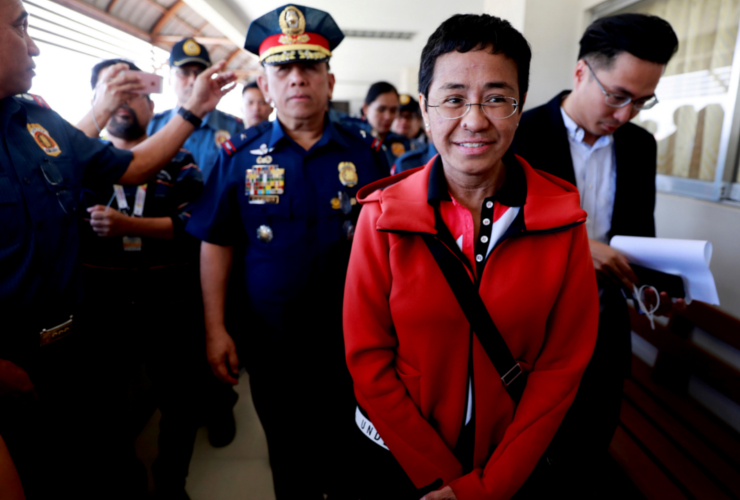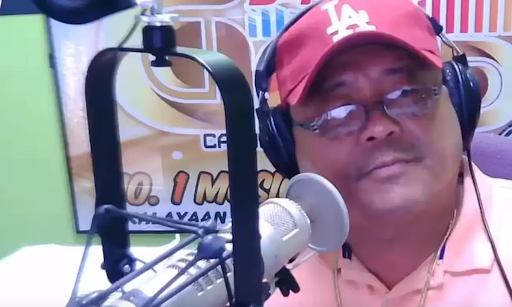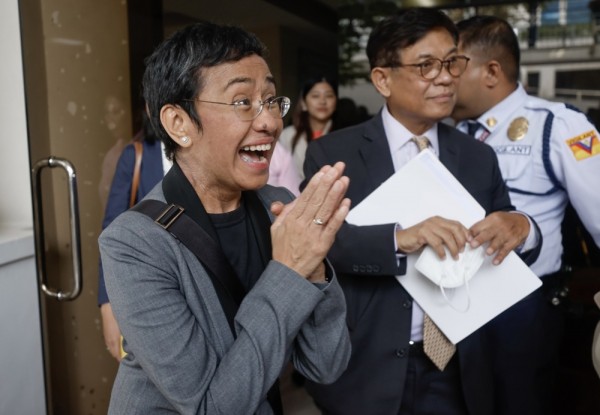The Executive Board chair of the International Press Institute (IPI), a global network of editors, media executives and journalists, has condemned the trial of Philippine editor Maria Ressa on cyber-libel charges as farcical and part of a targeted campaign to silence her.
The chair, Markus Spillmann, said today that the cyber-libel case was not simply an abuse of the law but also an element of a wider effort by the government of President Rodrigo Duterte to harass Ressa, herself a member of IPI’s global Executive Board, and shut down Rappler, the crusading news website Ressa founded.
“The cyber-libel charge against IPI Executive Board member Maria Ressa is just one of 11 criminal complaints that Ressa and Rappler are facing”, Spillmann said. “Taken together, these cases amount to a reprehensible campaign by the Philippines government to silence a news organization that has been courageously investigating corruption and human rights violations in the country.”
The cyber-libel trial against Ressa, which began this past week, is based on a report published by Rappler on May 29, 2012, which said that the then-chief justice of the Philippines’s Supreme Court, Renato Corona, had used vehicles belonging to a controversial businessman. The article was republished on February 19, 2014, to correct a spelling error, which is a normal practice of news publications.
Earlier this year, prosecutors filed charges at the Regional Trial Court in Manila against former Rappler reporter Reynaldo Santos Jr., Ressa and Rappler Inc. under the Cybercrime Prevention Act 2012, accusing the defendants of maliciously attacking, injuring and impeaching the reputation of the businessman, Wilfredo D. Keng, through the version of the article published on February 19, 2014.
That date is relevant because the Cybercrime Prevention Act, on which the indictment is based, was enacted on September 22, 2012, almost five months after the publication of the original report in Rappler. Moreover, the Supreme Court had issued a temporary restraining order against the law on October 9, 2012, which was not lifted until April 22, 2014. The Constitution of the Philippines and the country’s Revised Criminal Code prohibit retroactive application of criminal law to the detriment of defendants.
“In addition to rule of law concerns, the decision to prosecute Maria Ressa over an article published seven years ago on a matter of public interest suggests that authorities are taking advantage of an already highly problematic law to intimidate her”, IPI Director of Advocacy Ravi R. Prasad said. “We urge the Philippines to let Ressa and Rappler do their work free from harassment.”
The Duterte government has brought 10 other cases against Rappler and Ressa, including five tax cases and an alleged violation of nationality law (“anti-dummy law”) against Ressa. Spurious tax cases are an increasingly common way of targeting the press – including in Cambodia, Zambia and Turkey – as they often carry a superficial degree of legitimacy.
Rappler has become a prime target of President Duterte, who has made false allegations against the media organization and accused it of being funded by foreign agencies in order to destabilize his government. Rappler’s journalists have been barred from covering the president’s events across the country.



